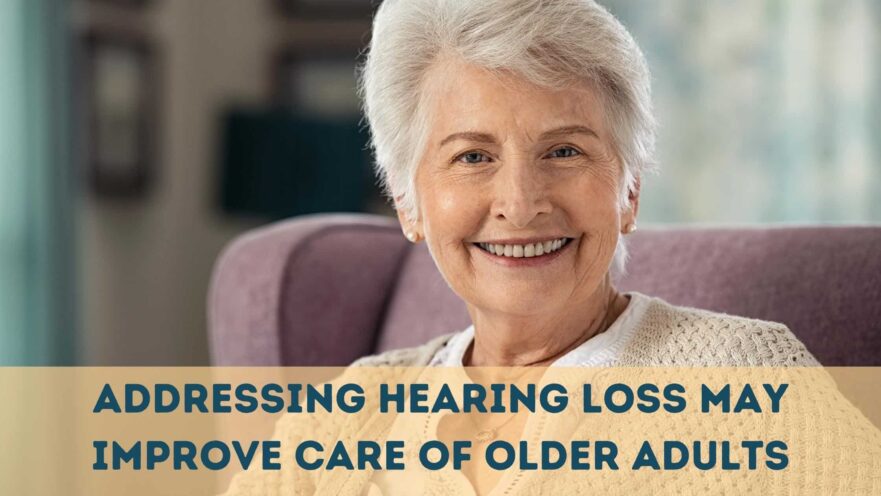According to a study from New York University, it appears that people with hearing loss are readmitted to hospitals at a higher rate than people without hearing loss. It makes us question what ways people who have trouble communicating verbally might need to be accommodated differently within our healthcare system to ensure equitable conditions. As a national healthcare structure, are we failing people who have challenged hearing?
About the study
These findings used data from a national survey that showed that patients reported a difficult time communicating with their doctors. That segment of the survey population had a 32% higher risk of being admitted again to the hospital within thirty days of being discharged. Jan Blustein, a member of the research team and part of New York University’s Robert F. Wagner School of Public Service says that, “Attending to hearing loss is a strategy that hospitals really have not tried, and if they tried it they might be able to reduce the risk of readmission for a significant portion of their patients.”
Prevalence of hearing loss in the United States
Around 30 million people in the United States have hearing loss. Data from the National Health and Nutrition Examination Survey shows that 30% of people between 65 and 74 years of age have hearing loss, while almost 50% of people over 75 struggle with the condition.
Of people who would benefit from hearing aids, less than 16% have pursued them as a form of hearing loss intervention. Studies also suggest that many people with challenged hearing are undiagnosed.
Additional concerns for medical professionals
In addition to questioning the effectiveness of conversations and difficulty communicating important medical information, doctors have more to worry about with patients who present hearing loss. People who have hearing loss and thus trouble communicating are much more likely to have associated conditions. They are at higher risk for social isolation, depression, lower self-esteem, poorer quality of life, decreased functional and relationship status, and dementia. These myriad negative factors make caring for patients with hearing loss difficult for family physicians.
Ways to accommodate hearing loss in medical settings
Of the more than 4,000 participants studied, all of whom were aged 65 or older, nearly 12% reported that hearing loss made it difficult to communicate with doctors and healthcare professionals.
People with different onsets of hearing loss, either at birth or later in life tend to have very different needs in terms of aids for listening. For instance, a person who has had hearing loss since birth will likely benefit more from a sign language interpreter, while a person whose hearing difficulties arrived later in life should be provided with and encouraged to use assistive listening devices, like hearing aids.
In order to serve patients with hearing loss more successfully, hospitals and medical staff should be well versed in providing these aids. At the very least, real-time captioning can help both listening on the patient’s end as well as providing a transcript or history for future healthcare scenarios. If this isn’t an option in your healthcare setting, be aware that laptops can be used to find captioning tools on the web.
But using hearing aids in advance might help
When older people with difficulty hearing wear hearing aids, they have a lower risk of both being hospitalized and even visiting the emergency room, according to another study published in JAMA Otolaryngology-Head & Neck Surgery.
It might be that people who wear hearing aids are more comfortable disclosing their hearing loss and asking for accommodations for their hearing challenges from medical professionals. If that’s the case, it’s great news! If we can only work to make patients more comfortable by assessing and directly addressing hearing loss, we can drastically improve health outcomes.
Schedule a hearing consultation
If you or a loved one is having trouble communicating or listening in the world, schedule a hearing consultation to tend to your hearing health. After a simple hearing test, we’ll walk you through your range of hearing health. Getting a diagnosis doesn’t mean you have to take any action, but our team of hearing health professionals can help to guide you on these early days of confronting and addressing hearing loss. Together, we can help you on your path to a more enhanced listening life.

